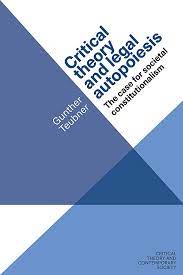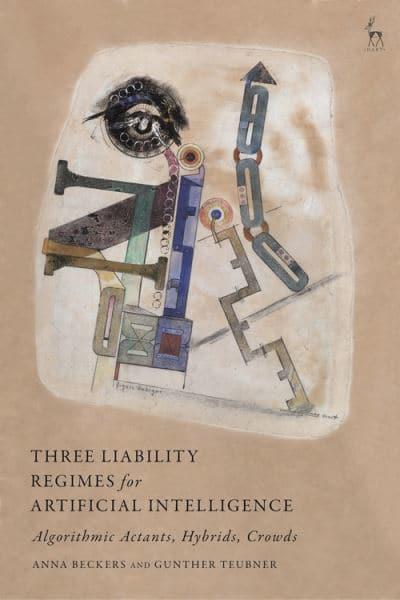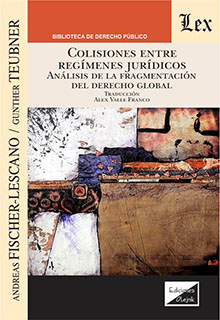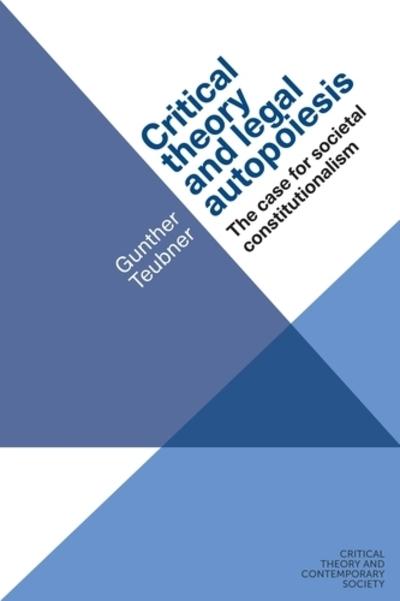Critical theory and legal autopoiesis
the case for societal constitutionalism
- ISBN: 9781526107237
- Editorial: Manchester University Press
- Fecha de la edición: 2023
- Lugar de la edición: Manchester. Reino Unido
- Colección: Critical Theory and Contemporary Society
- Encuadernación: Rústica
- Medidas: 24 cm
- Nº Pág.: 408
- Idiomas: Inglés

This volume collects and revises the key essays of Gunther Teubner, one of the world's leading sociologists of law. Written over the past twenty years, these essays examine the 'dark side' of functional differentiation and the prospects of societal constitutionalism as a possible remedy. Teubner's claim is that critical accounts of law and society require reformulation in the light of the sophisticated diagnoses of late modernity in the writings of Niklas Luhmann, Jacques Derrida and select examples of modernist literature. Autopoiesis, deconstruction and other post-foundational epistemological and political realities compel us to confront the fact that fundamental democratic concepts such as law and justice can no longer be based on theories of stringent argumentation or analytical philosophy. We must now approach law in terms of contingency and self-subversion rather than in terms of logical consistency and rational coherence.
Introduction: Gunther Teubner’s foundational paradox - Andreas Philippopoulos-Mihalopoulos
Part I: Law, literature and deconstruction
1 Self-subversive justice: contingency or transcendence formula of law?
2 The economics of the gift – the positivity of justice: the mutual paranoia of Jacques Derrida and Niklas Luhmann
3 Dealing with paradoxes of law: Derrida, Luhmann, Wiethölte
r4 The Law before its law: Franz Kafka on the (im)possibility of Law’s self-reflection
Part II: Juridical epistemology: reconstructing the horizontal effects of human rights, the private-public dichotomy, and contracting
5 The anonymous matrix: human rights violations by ‘private’ transnational actors
6 After privatisation? The many autonomies of private law
7 In the blind spot: the hybridisation of contracting
Part III: The dark side of functional differentiation: the normative response of societal constitutionalism
8 A constitutional moment? The logics of ‘hitting the bottom’
9 Global Bukovina: legal pluralism in the world society
10 Regime-collisions: the vain search for legal unity in the fragmentation of global law
11 Horizontal constitutional rights as conflict-of-laws rules: how transnational pharmaceutical groups manipulate scientific publications
12 The project of constitutional sociology: irritating nation state constitutionalism
13 Exogenous self-binding: how social subsystems externalise their foundational paradoxes in the process of constitutionalisationAfterword: the milestones of Teubner’s neo-pluralism - Alberto Febbrajo
Index --









